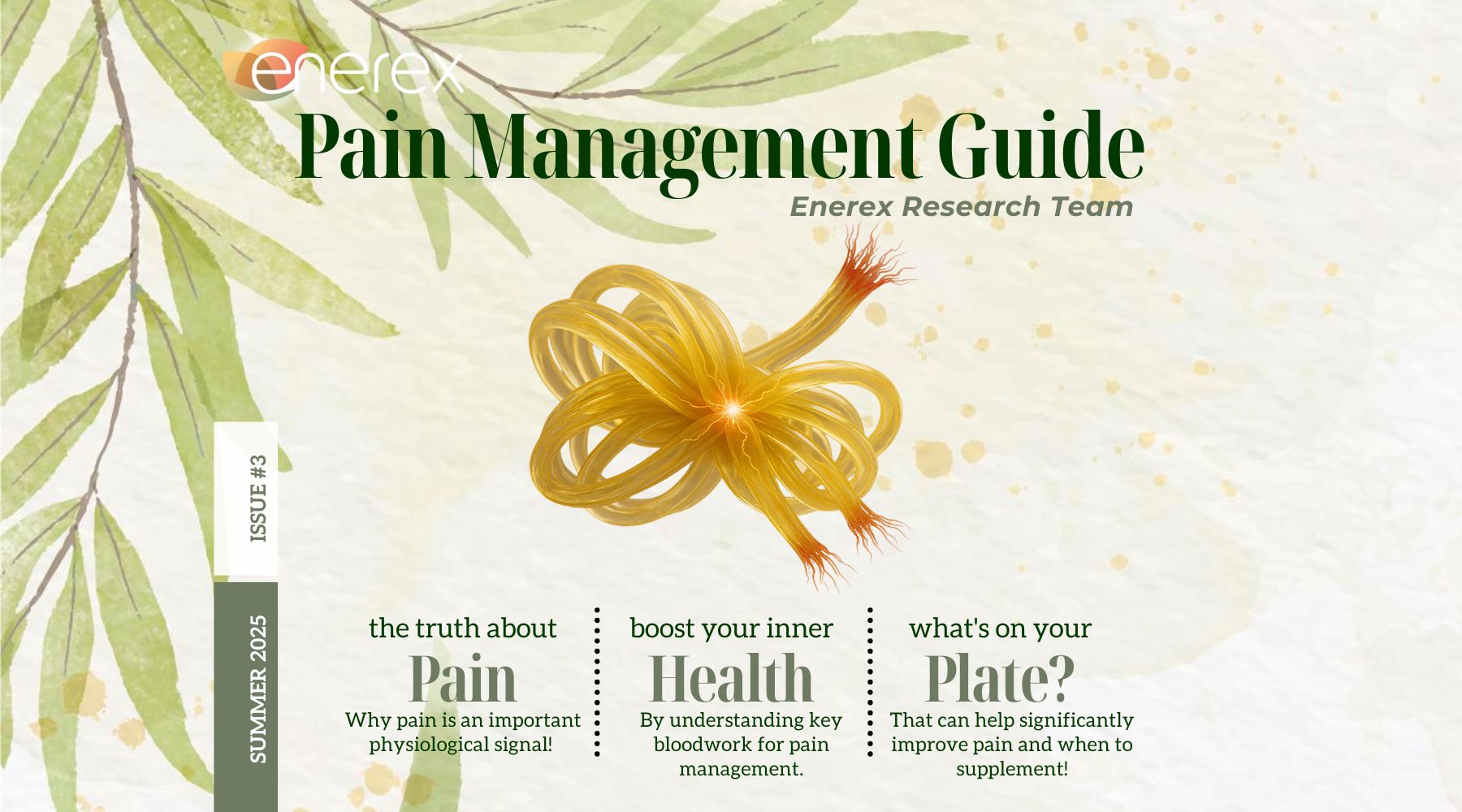The Promising Role of Probiotics in Managing Autoimmune Diseases and Enhancing Female Fertility

"As soon as we pass through the birth canal we begin to become 90 percent microbe"
Probiotics, particularly strains like Lactobacillus acidophilus, Bifidobacterium bifidum, and Bifidobacterium longum, are gaining prominence for their potential benefits beyond the gut, impacting overall health, immune function (autoimmune disease), and chronic inflammation management. Recent studies underscore their role in modulating immune responses, which may significantly influence conditions like autoimmune thyroid disease, systemic lupus erythematosus, and inflammatory bowel disease.
Probiotics and Autoimmune Diseases
Autoimmune diseases trigger when the immune system erroneously attacks the body. These conditions include celiac disease, rheumatoid arthritis, and systemic lupus erythematosus (and many other autoimmune diseases). Probiotics play a pivotal role in:
Regulating Immune Responses: They modulate immune cells, reducing systemic inflammation and promoting tolerance, thus alleviating autoimmune conditions.
Strengthening the Gut Barrier: Specific probiotics enhance intestinal barrier functions, decreasing intestinal permeability, commonly referred to as leaky gut, a risk factor for several autoimmune diseases.
Probiotics and Female Fertility (The Autoimmune Connection)
Probiotics improve gut and vaginal health, which is crucial for pregnant women and those undergoing fertility treatments:
Enhancing Vaginal Microbiota: Probiotics such as Lactobacillus acidophilus maintain a healthy vaginal flora, which plays an important role in increasing the chances of conception and reducing the risk of complications like bacterial vaginosis.
Support in IVF Treatments: Studies involving probiotic supplementation with Bifidobacterium strains have been shown to modify the endometrial microbiota during IVF cycles, suggesting improvements in pregnancy outcomes. This is a new revolution that connects the world of autoimmune reactions to hormone regulation and fertility.

Inflammatory Conditions and Gut Health
Inflammation is a hallmark of many health conditions, including polycystic ovary syndrome and inflammatory bowel disease. Probiotics contribute to:
Reducing Inflammatory Markers: Such as tumor necrosis factor and regulatory T cells, mitigating inflammatory responses that contribute to chronic inflammation and irritable bowel syndrome.
Immune System Modulation: By influencing the gut microbiota, probiotics help in fine-tuning the immune system, important for managing inflammatory diseases and insulin resistance.
Clinical Insights and Future Directions
Probiotics are instrumental in:
Probiotic Strains for Health: Clinical trials continue to explore the effects of probiotics on human health, showing significant differences in the management of gut dysbiosis and systemic inflammation.
Potential for Therapeutic Use: With their ability to affect immune function and gut microbiota, probiotics hold the key to new treatments for autoimmune conditions and improving gut health.
Further studies are needed to understand the complete mechanisms of how probiotics can be optimized in clinical settings to manage autoimmune conditions effectively and support fertility in women. The future of probiotics looks promising as an integral part of therapeutic strategies targeting the intricate balance of the immune system and inflammatory pathways.
Conclusion
The use of probiotics represents a significant advance in the treatment and management of autoimmune diseases and fertility issues. Their beneficial effects on the immune system, gut health, and inflammatory responses have opened new avenues for enhancing human health and managing chronic health conditions effectively. As research evolves, the integration of probiotic supplementation in clinical protocols continues to hold a pivotal role in advancing healthcare outcomes.
References
- Klaenhammer TR, Barrangou R, Buck BL, Azcarate-Peril MA, Altermann E. Bifidobacterium mechanisms of immune modulation and tolerance. NCBI . Accessed April 14, 2024.
- Forsum U, Holst E, Larsson PG, Vasquez A, Jakobsson T, Mattsby-Baltzer I. The Lactobacillus flora in vagina and rectum of fertile and postmenopausal healthy Swedish women. NCBI . Accessed April 14, 2024.
- Hojsak I, Fabiano V, Pop TL, et al. Probiotics Mechanism of Action on Immune Cells and Beneficial Effects. NCBI . Accessed April 14, 2024.
- Turroni F, Ventura M, Buttó LF, Duranti S, O'Toole PW, Motherway MO, van Sinderen D. Bifidobacteria and Their Molecular Communication with the Immune System. NCBI . Accessed April 14, 2024.
- Franasiak JM, Scott RT Jr. Potential Influence of the Microbiome on Infertility and Assisted Reproductive Technology. NCBI . Accessed April 14, 2024.
- Vighi G, Marcucci F, Sensi L, Di Cara G, Frati F. Causal Relationship Between Gut Microbiota and Autoimmune Diseases. NCBI . Accessed April 14, 2024.
- Lü M, Yu S, Deng J, Yan Q, Yang C, Xia G, Zhou W. Role of Lactobacillus in Female Infertility Via Modulating Sperm Agglutination and Immobilization. NCBI . Accessed April 14, 2024.
- Kalliala I, Pukkala E, Leminen A, Pukkala E, Tomás E, Paavonen J. Pregnancy outcomes after vaginal probiotic supplementation before frozen embryo transfer: a randomized controlled study. NCBI . Accessed April 14, 2024.
- Yamazaki Y, Kawano Y, Oikawa T. Bifidobacterium bifidum Enhances the Intestinal Epithelial Tight Junction. NCBI . Accessed April 14, 2024.
- Honda K, Littman DR. The Dynamic Interplay between the Gut Microbiota and Autoimmune Disorders. NCBI . Accessed April 14, 2024.
- Dugoua JJ, Machado M, Zhu X, Chen X, Koren G, Einarson TR. Vaginal Probiotics for Reproductive Health and Related Dysbiosis: Systematic Review and Meta-Analysis. NCBI . Accessed April 14, 2024.
- Reid G, Brigidi P, Burton JP, Contractor N, Duncan S, Fargier E. Can probiotics enhance fertility outcome? Capacity of probiotics as a single intervention to improve the feminine genital tract microbiota in non-symptomatic reproductive-aged women. NCBI . Accessed April 14, 2024.
- Honda K, Littman DR. Gut microbiome and autoimmune disorders. NCBI . Accessed April 14, 2024.
- Leclercq S, Mian FM, Stanisz AM, Bindels LB, Cambier E, Ben-Amram H, Koren O, Forsythe P. Characterizing the gut microbiota in females with infertility and the potential role of probiotics. NCBI . Accessed April 14, 2024.
- Hempel S, Newberry SJ, Maher AR, Wang Z, Miles JN, Shanman R, Johnsen B, Shekelle PG. The Anti-Inflammatory and Curative Exponent of Probiotics. MDPI . Accessed April 14, 2024.
- Ata B, Yildiz S, Turkgeldi E, Brocal VP, Dinleyici EC, Moya A. The gut microbiota and endometriosis: From pathogenesis to treatment. NCBI . Accessed April 14, 2024.
- Koren O, Goodrich JK, Cullender TC, Spor A, Laitinen K, Kling Bäckhed H, Gonzalez A, Werner JJ, Angenent LT, Knight R. Implications of Probiotics on the Maternal-Neonatal Interface. NCBI . Accessed April 14, 2024.
- Nordqvist J, Ronnevi LO, Ronnlund R, Smedby B. Personalized Nutrition in the Management of Female Infertility. NCBI . Accessed April 14, 2024.
- Rook GA, Raison CL, Lowry CA. Probiotics in Autoimmune and Inflammatory Disorders. NCBI . Accessed April 14, 2024.
- Office of Dietary Supplements. Probiotics - Health Professional Fact Sheet. NIH ODS . Accessed April 14, 2024.







Laissez un commentaire